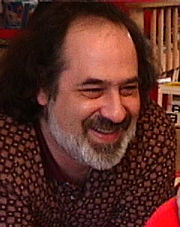128:
to amend its defence to include a large number of extracts from other internet postings that the defendant sought to claim were
Laurence Godfrey's words. It is emphasised that the defendant merely alleged that these words were Godfrey's. The judge also makes this clear in his judgment by listing all the material in question under the headings “postings allegedly made by the Plaintiff about Thailand”
132:
proven and at the conclusion of the case an agreed statement was made in open court in which it was stated (inter alia): “Demon is also here today ... to apologise to Dr
Godfrey for not removing the postings from its servers and for alleging in his defence that Dr Godfrey had deliberately provoked them, a contention which it now withdraws”.
131:
The judge described as "provocative" those words alleged by the defendant to have been posted by
Godfrey. At that time Godfrey had had no opportunity to admit or deny these allegations, since they were made by way of proposed amendments to the defence. However, in the event these allegations were not
127:
There have since appeared several misrepresentations of the second of the two interlocutory judgments of Mr. Justice
Morland in the (first) Godfrey v. Demon action. Having struck out the core of Demon's defence in his first judgment, Morland J considered a further application by the defendant (Demon)
123:
Ruling on a pre-trial motion, the court found that an
Internet service provider can be sued for libel, and that any transmission by a service provider of a defamatory posting constituted a publication under defamation law. Demon thereafter entered into an out-of-court settlement that paid Godfrey
143:
Following
Godfrey v Demon, ISPs began to remove defamatory statements as soon as they received a complaint about them. Media lawyers have described the case's resultant restriction on freedom of expression as "disproportionate" and suggested that it may not survive a challenge under the
108:, to inform them of the forged message and ask that it be deleted from Demon Internet's Usenet news server. Demon Internet declined to remove the message, which remained on its servers for ten additional days, at which time it was automatically deleted along with all other old messages.
31:
277:
140:
Laurence
Godfrey commented that he was happy with the settlement. Godfrey was subsequently the plaintiff in a variety of other internet-based libel suits.
287:
282:
272:
90:
267:
79:
292:
145:
101:. That message—sent by an unknown source—had been forged to appear to have been sent by Dr. Godfrey.
115:, citing Demon's failure to remove the forged message at the time of his initial complaint.
221:
194:
168:
105:
71:
261:
247:
75:
30:
198:
195:"Judgment - Godfrey v. Demon Internet Ltd [1999] EWHC QB 240"
94:
93:—a physics lecturer—learned that someone had posted a message to the
112:
16:
UK court case concerning liability of internet service providers
172:
244:
MacNae's
Essential Law for Journalists, 17th Edition
53:
45:
37:
23:
124:£15,000 plus £250,000 for his legal expenses.
8:
29:
20:
278:Internet censorship in the United Kingdom
70:QB 201 was a landmark court case in the
157:
163:
161:
104:On 17 January 1997 Godfrey contacted
7:
41:High Court, Queen's Bench Division
14:
67:Godfrey v Demon Internet Service
24:Godfrey v Demon Internet Service
288:1999 in United Kingdom case law
169:"Demon settles net libel case"
1:
220:Jill Priluck (7 June 1998).
283:High Court of Justice cases
273:English defamation case law
309:
80:Internet service providers
250:. 2003. pp. 240–241.
222:"Free Speech, But Whose?"
58:
28:
268:English tort case law
78:and the liability of
49:4 All ER 342, QB 201
74:concerning online
293:Internet case law
111:Godfrey sued for
97:discussion group
63:
62:
300:
252:
251:
240:
234:
233:
231:
229:
217:
211:
210:
208:
206:
191:
185:
184:
182:
180:
165:
146:Human Rights Act
99:soc.culture.thai
91:Laurence Godfrey
33:
21:
308:
307:
303:
302:
301:
299:
298:
297:
258:
257:
256:
255:
242:
241:
237:
227:
225:
219:
218:
214:
204:
202:
201:. 23 April 1999
193:
192:
188:
178:
176:
175:. 30 March 2000
167:
166:
159:
154:
138:
121:
88:
17:
12:
11:
5:
306:
304:
296:
295:
290:
285:
280:
275:
270:
260:
259:
254:
253:
235:
212:
186:
156:
155:
153:
150:
137:
134:
120:
117:
106:Demon Internet
87:
84:
72:United Kingdom
61:
60:
56:
55:
51:
50:
47:
43:
42:
39:
35:
34:
26:
25:
15:
13:
10:
9:
6:
4:
3:
2:
305:
294:
291:
289:
286:
284:
281:
279:
276:
274:
271:
269:
266:
265:
263:
249:
245:
239:
236:
223:
216:
213:
200:
196:
190:
187:
174:
170:
164:
162:
158:
151:
149:
147:
141:
135:
133:
129:
125:
118:
116:
114:
109:
107:
102:
100:
96:
92:
85:
83:
81:
77:
73:
69:
68:
57:
52:
48:
44:
40:
36:
32:
27:
22:
19:
243:
238:
226:. Retrieved
215:
203:. Retrieved
189:
177:. Retrieved
142:
139:
136:Significance
130:
126:
122:
110:
103:
98:
89:
66:
65:
64:
18:
205:16 December
262:Categories
248:LexisNexis
228:23 October
179:23 October
152:References
76:defamation
119:Judgment
54:Keywords
46:Citation
224:. Wired
199:Bailii
95:Usenet
113:libel
86:Facts
59:Libel
38:Court
230:2007
207:2017
181:2007
173:BBC
264::
246:.
197:.
171:.
160:^
148:.
82:.
232:.
209:.
183:.
Text is available under the Creative Commons Attribution-ShareAlike License. Additional terms may apply.
